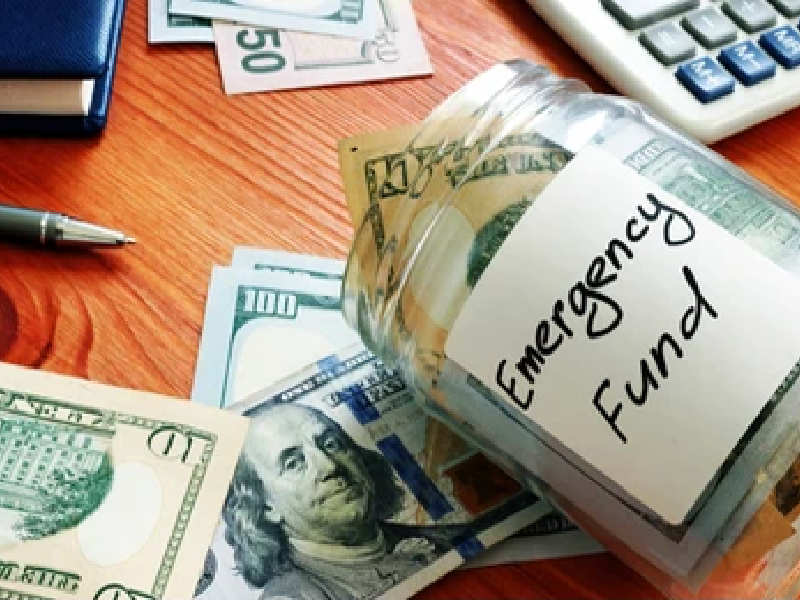
Much has been talked about the recent crisis faced by the world due to the pandemic, job losses in the face of recession-like conditions in many countries, the war between Russia and Ukraine, and many more. The critical link between all these conditions is the need to have backup or emergency funds to tide over the financial crisis due to such conditions. However, simply having emergency funds is of no use if they cannot be accessed when needed. It defeats the very purpose of having emergency funds. Therefore, given here are a few top choices where one can park their emergency funds so they can get timely access to the same to meet their requirements.
Read More: 5 Tips for the self-employed to build their emergency fund nest faster
What are emergency funds and why do you need them?
Let us begin with the most basic question which is the meaning of emergency funds. Emergency funds in simplest terms can be referred to as contingency funds. These funds are in the nature of backup funds that can be used to meet financial obligations in times of financial emergencies like job loss, pay cuts, loss of the sole earning member of the family, etc. Emergency funds provide much-needed financial relief in such tough times without adding the burden of missed mandatory payments like utilities, EMIs, children’s education, etc.
Most favoured choices for parking emergency fund
One of the key features of emergency funds is their immediate accessibility. Therefore it is important to understand that funds parked in long-term investment options with lock-in periods like PPFs, tax savings FDs, Government bonds, NPS, etc. cannot and should not be considered to be part of emergency funds. These are long-term investments that are set to meet targeted long-term financial goals.
Emergency funds therefore should be parked in short-term investment options that are mostly liquid and also provide decent returns along the way.
Some of the top choices to park emergency funds are discussed below
- Savings account
Savings accounts are normal bank accounts that provide modest returns of usually 2% to 3% annually. Few banks provide better returns that can be up to 5% and senior citizens get marginally additional returns in the form of the annual interest earned from savings accounts. Funds in these accounts can be accessed at any point and are almost as liquid as cash in today’s world.
However, it is not advisable to park all emergency funds in savings accounts as the returns are not inflation-proof and neither are tax-free. Also, if the baking system is not too stable there is a risk of losing all the funds as seen in banks like PMC Bank and Yes Bank in recent years. Therefore, while this is a good option to park emergency funds, it should be used moderately.
Mutual funds are one of the top choices and a primary ingredient in almost every investment portfolio. Investors can choose from diverse options depending on their risk-return perceptions and their time frame for investments. Mutual funds also provide a good investment option for parking emergency funds through liquid funds or overnight funds.
These funds provide modest returns but can be accessed immediately whenever needed. Another good option is the short-term debt funds or ultra short term mutual funds with maturity ranging from 3 months to a year. These funds provide stability of investment in debt funds as well as better returns as compared to savings bank accounts.
- Bank deposits
Bank FDs are also a staple in any investment portfolio and can be used to park emergency funds too. Bank FDs can be for a duration of 7 days to 10 years and short-term Bank FDs can be opted for a minimum duration of 7 days to a maximum duration of a year. They provide better returns than normal bank savings accounts and senior citizens can have the benefit of marginally higher returns too. Also, Bank FDs are protected through an insurance cover provided by Deposit Insurance and Credit Guarantee Corporation (DICGC) of up to Rs. 5,00,000 which includes both principal and accrued interest. This makes Bank FDs a very convenient as well as a secure source to park emergency funds.
- Money market funds
Money market funds are typically low-risk funds that invest in short-term government securities like treasury bills, commercial papers, money market instruments, etc. These securities are backed by the government hence the risk of default is minimal. These funds provide modest returns and have a maturity of 3 months to 12 months making them a good option to park short-term emergency funds.
Conclusion
Emergency funds are often not given much importance as we all tend to ignore that we can encounter emergencies at any point. However, they should be a crucial part of our financial planning. It is advisable to have at least 12 months of salary in the form of emergency funds to navigate any adverse situation without the added stress of managing finances.
FAQ
Some of the key rules in creating emergency funds are that they should be easily accessible and should be parked in preferably risk-free investment options to avoid any risk of loss of corpus.
There is no optimum amount for emergency funds as it varies depending on individual needs. However, most experts believe that one should have at least 12 months of salary or monthly income saved in emergency funds.
A few other popular options for parking emergency funds are Post Office Time Deposit Schemes, Company FDs and secured NCDs, Fixed Maturity Plans, etc.
The best way to grow emergency funds is to find an investment option that may provide modest to moderate but risk-free returns and to invest in such options regularly and consistently.


























